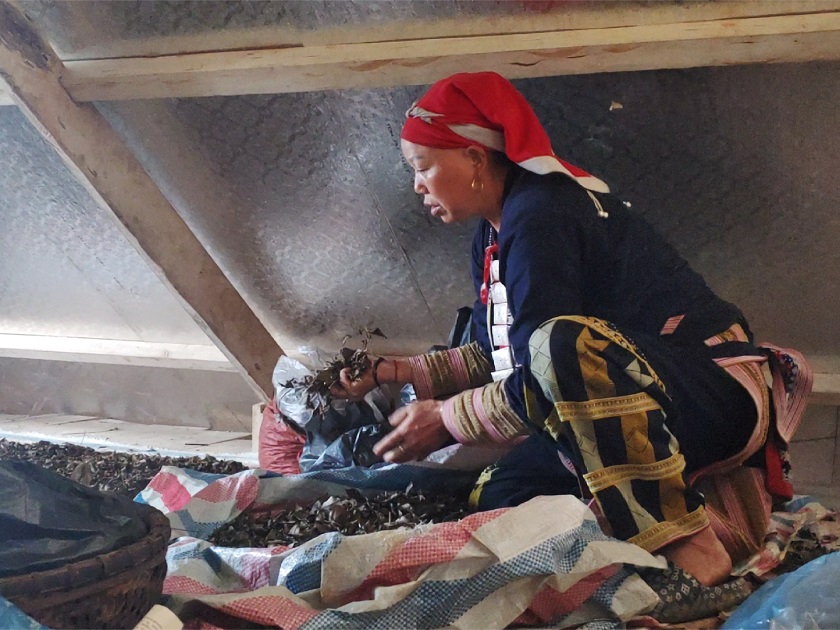This study explores the roles of Thai customary law in community-based forest management in Dong Van commune, Que Phong district, Nghe An province, and investigates the dependence of the Thai on community forests for their livelihoods and spiritual well-being. Historically, Thai communities used and managed the forest surrounding their settlements. These forests provided them with spiritual spaces and they gathered materials and food from them to sustain themselves. However, war, and later various development schemes disrupted their lives and led to their resettlement and the allocation of their traditional forests to individuals, companies or government entities.
The study details the recent settlement and resettlement of four Thai communities and subsequent forest land allocations. Qualitative interviews, ranking exercises and extensive surveys of their collection and sale of NTFP were used to determine the importance of the forest in their daily lives. Sacred rituals are documented and their importance for social cohesion and forest and water supply protection is explored.
The study finds that in several instances, the local authorities have largely ignored or not understood Thai culture, allocating sacred forest and other community managed watershed forests to households and the protection forest management board (PFMB) or other entities. As a result rituals have been reduced or weakened in some villages. Sacred forests have rapidly diminished in size, and many households are without legal land management rights, a serious threat to their livelihoods.
The study notes the resilience of the Thai people, however, and their determination to keep their culture and rituals, even in the face of relentless pressure on forest resources. Although in many cases not legal owners of watershed forests, Thai communities continue to manage and protect them, ensuring clean drinking water for their villages, and good supplies of water for agricultural purposes.
Women were found to have a vital role in managing community forests, and in generating income from the forest. Despite this, however, and official recognition of their rights to own land, men continue to control decision making.
In the light of their findings, the authors make recommendations for the upcoming law on Forest Protection and Development and also for Dong Van CPC. They recommend the immediate legal allocation of sacred forest, cemetery forest and watershed forest to communities. This is regarded as the best way to protect Thai culture and livelihoods, the bio diversity of the forest and water supplies. However, to simply reallocate forest is not enough. Any allocation must be accompanied by support for planning and zoning the forest, as well as training and assistance in enrichment planting, cropping under the canopy and other sustainable livelihoods practices.
Read full here 


